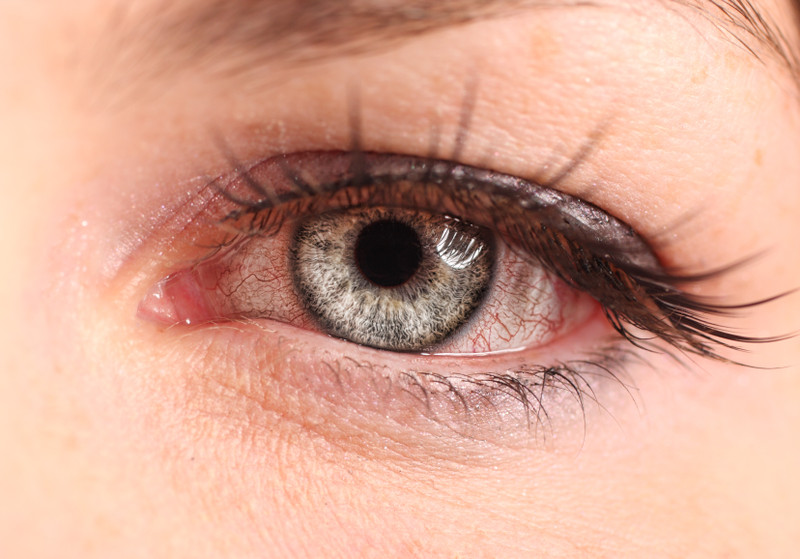Pink eye is a fairly common ailment that can be irritating at the very least. Here, we take a look at the causes and symptoms of pink eye, and discuss several supplemental vitamins and nutrients which can prevent and/or treat pink eye.
What Is Pink Eye?
Pink eye refers to inflammation of the transparent membrane that lines the eyeball and eyelid, known as the conjunctiva. Medically deemed as “conjunctivitis,” pink eye causes the blood vessels in this membrane to swell and become irritated, leading to pink or red discoloration in the white part of the eye.
This usually results from a viral infection, or a bacterial infection. Pink eye can occur in one or both eyes. Besides discoloration, symptoms can include itchiness, a gritty feeling, teary eyes, and photophobia (sensitivity to light).
Pink eye can come about on its own or in tandem with a respiratory infection or the herpes simplex virus. It often occurs after some form of contact with a person who is infected. The use of extended-wear contact lenses can also increase risk of pink eye.
Treatment for pink eye is pretty simple and usually centers on symptom relief. The use of artificial tears (eye drops), a gentle cold or warm eye compress, and cleaning the eyes with clean water are recommended. Temporarily refraining from the use of contact lenses is also helpful. In cases of bacterial pink eye, antibiotic eye drops could be prescribed.
Supplements Which Could Mitigate Pink Eye
Certain vitamins and nutrients can be taken to reduce the chances of an infection leading to pink eye and/or to treat pink eye when it occurs. Here are the best recommended supplements for pink eye:
Vitamin C supplementation is known to mitigate inflammation in the eyes. This could help to directly lessen the effects of pink eye, since pink eye symptoms are the result of inflammation. At least 500mg of vitamin per day could help prevent pink eye and mitigate it when it occurs.
Vitamin D could support the immune system such that you are less likely to contract conjunctivitis. Without sufficient vitamin D, the immune system can’t defend against infections like it should. Not having enough vitamin D also correlates with increased inflammation and reduced tear production, which could contribute to the flourishing of bacteria in the eyes.
Eyebright is an herb that is used as a supplement for multiple purposes. Its name is fitting, because it has the potential to mitigate pink eye by toning swollen and leaky membrane tissues. This includes the conjunctiva in the eye.
Zinc supplementation could be useful in mitigating pink eye, merely because it is supportive to the immune system.
Probiotics: A probiotic supplement could help reduce eye inflammation. This supplement contains healthy bacteria that can benefit the body.
The supplements listed above can each be helpful in reducing the chances of you or your child contracting pink eye; they can even be used to treat pink eye if it occurs. It’s recommended that you talk to your healthcare provider before adding any of these supplements to your daily regimen, since some supplements and herbs can interact with other medications.

